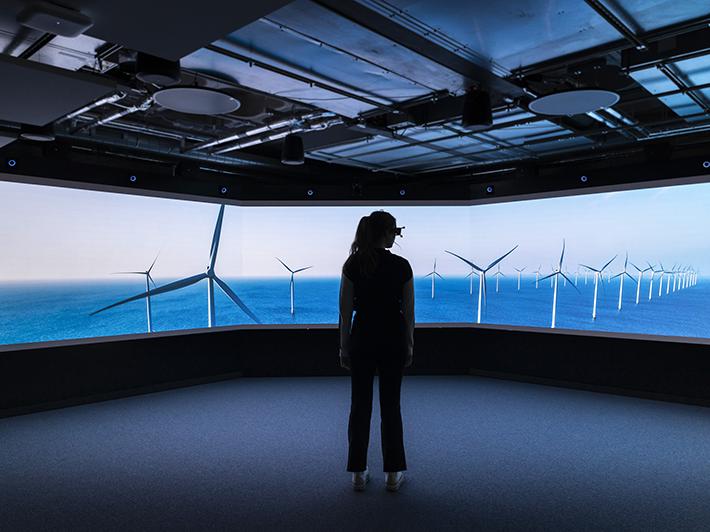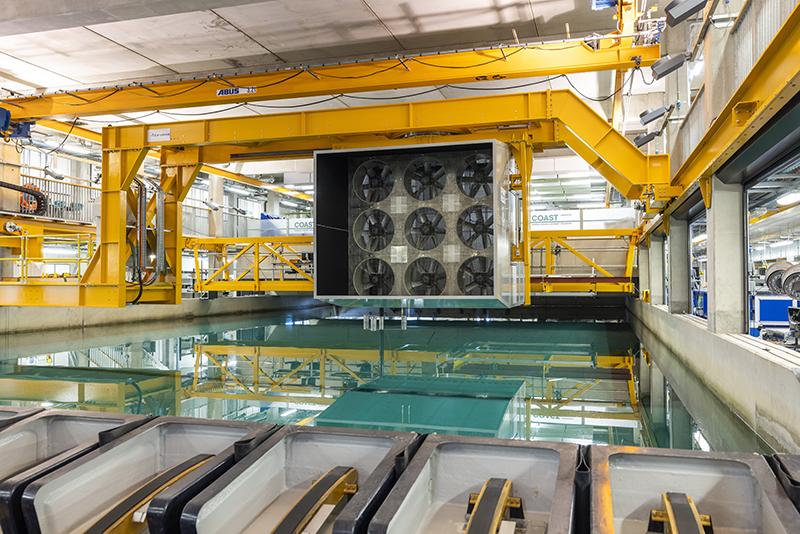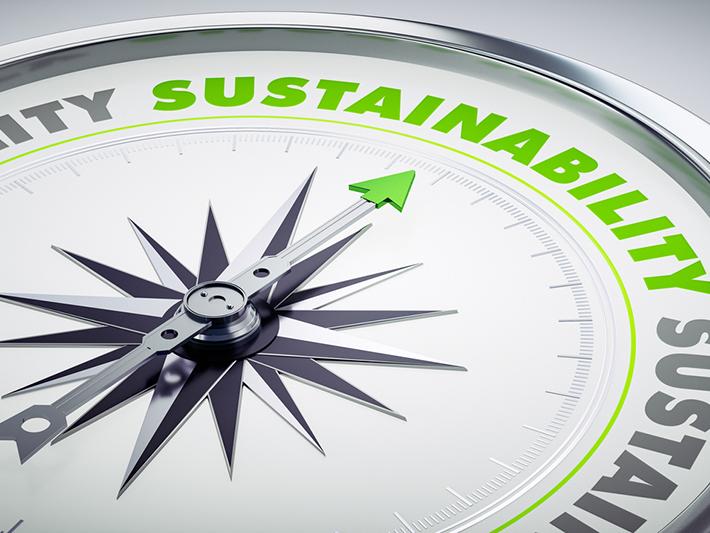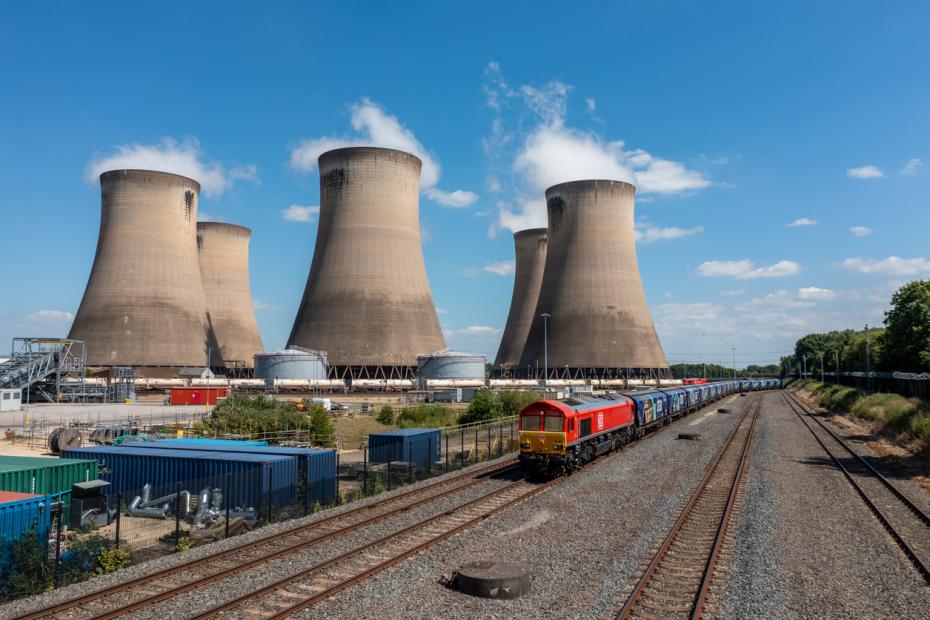
It’s time to turn the tide on our clean energy ambitions

An ancient proverb states that “time and tide wait for no one”. It is usually interpreted as meaning that if something needs doing, do it. Many elements of modern society warrant such sentiments. But when it comes to our climate, the quest for net zero – and a reduction in greenhouse gas emissions – would top many a priority list. Amid global efforts to reduce humans’ impact on the planet, those who conceived the proverb almost 800 years ago inadvertently offered a call to action and a solution.
For millennia, society has sought ways to harness the ocean’s power. But in recent decades, considerable work has been done towards a revolution that would create both environmental and economic benefits for communities and the planet as a whole. Realising the full potential of offshore renewable energy (ORE), however, is not as easy as flicking a switch.
- THE Awards 2024 spotlight: learn from the best in UK and Irish higher education
- THE podcast: educating our way out of the climate crisis
- Equipping university students to be leaders in addressing climate change
The global demand for energy is going in one direction: up. The world is using power in greater quantities and to support new and emerging sectors, such as the electrification of transport. In the UK, our electricity demand is set to double by 2050. Growing awareness of the climate crisis is sparking commitments around clean energy generation. As we progress towards 2030, the date so many of our climate targets are pinned on, the ocean is increasingly a source of hope – and solutions.
Since the 1970s, wave energy has been recognised as a sustainable and clean way of powering homes, industries and communities. But the journey of development when it comes to ORE technologies has not been a smooth one. Innovations are being engineered at universities across the UK, but ensuring that they reach the commercial sector and are deployed at scale remains a challenge. However, if the world is to meet its net-zero targets, it needs to find a way of navigating that path more efficiently and effectively.
An island nation, the UK has about 14.7GW of offshore wind capacity – but, based on current projections, by 2050 it will need seven times that. And we are not simply talking about more of the same. Meeting the 2050 targets is based in large part on major advances in new floating offshore wind (FLOW) solutions, with the Crown Estate engaging major developers wanting to develop sites in new areas such as the Celtic Sea. Enlarging that sector will take time, effort and investment.

In other ORE fields, there are no commercial-scale wave-energy installations, but 6.4GW could be deployed by 2050. The first commercial tidal power projects are only now coming on stream, but by 2050 the UK could deploy 6.2GW.
Considering the pace of development so far, reaching these ambitious targets in just over 25 years will require a seismic and societal shift. However, the Supergen ORE consortium’s recently published ORE Outlook 2040 report emphasises how universities can be front and centre of that process. They can generate the research and innovation needed, train the future workforce and work with industry and government to plot a route for a safe, secure and sustainable future. The report also identifies four key actions that could help make such shifts a reality:
- Radical changes are required to expand and upskill workforces and raise productivity. Based on projections, the UK needs six times as many people working in the sector in 2040 as there are today.
- Planning and consenting processes must be made faster and more holistic, harnessing new technology and adaptive management. For example, it takes around 15 years from a seabed lease being awarded to a project reaching full operation.
- Rapid action is needed to reconfigure our ORE infrastructure and energy grid system. As things stand, the UK’s backlog for grid connections is the longest in Europe and addressing that will ensure that additional energy generated can be stored and used.
- Investment in research and innovation is needed to transform ORE technologies and supply chain competitiveness. For offshore wind alone, we need an estimated 5,000 new turbines, 3,000 km of mooring lines, 8,000 km of electrical cables, and 10,000 anchors, not to mention the hundreds of additional vessels needed to support installation, operation and maintenance.
Achieving some of these numbers may seem like a series of insurmountable challenges stacked on top of one another. But, from my perspective, doing so is both achievable and essential. In addition to having the natural resources, our science and engineering expertise means we possess the ambition and expertise to harness them. Taking a whole-system approach to reach our ORE goals while protecting nature and communities will be a global win-win, enabling the planet to enjoy a safe and prosperous future, and society to reap all manner of economic and environmental benefits.
As with all our global challenges, the success and growth of ORE will rely on goodwill and collaboration at local and global scales. It will also depend on increasing levels of research, innovation, collaboration and investment. But society has a track record of setting itself ambitious targets and working collectively to achieve them, and this is no exception.
When it comes to ORE, any option of sitting back and simply waiting for the tide has passed. It’s now time to turn it and create an environment where we power ahead with change. Universities must play a pivotal role in inspiring the next generation, from uniting researchers with business to translating innovation into practice, to growing the future workforce. If the HE sector can drive that transformation, it will create multidisciplinary environments through which we can collaborate and take a whole-system approach, and deliver transformative benefits to individuals, institutions, nations and the planet as a whole.
Deborah Greaves is professor of ocean engineering and director of the Centre for Decarbonisation and Offshore Renewable Energy at the University of Plymouth and director of the Supergen ORE Hub.
The University of Plymouth was shortlisted in the Outstanding Contribution to Environmental Leadership category in the 2024 THE Awards. A full list of nominees can be found here.
If you would like advice and insight from academics and university staff delivered direct to your inbox each week, sign up for the Campus newsletter.


